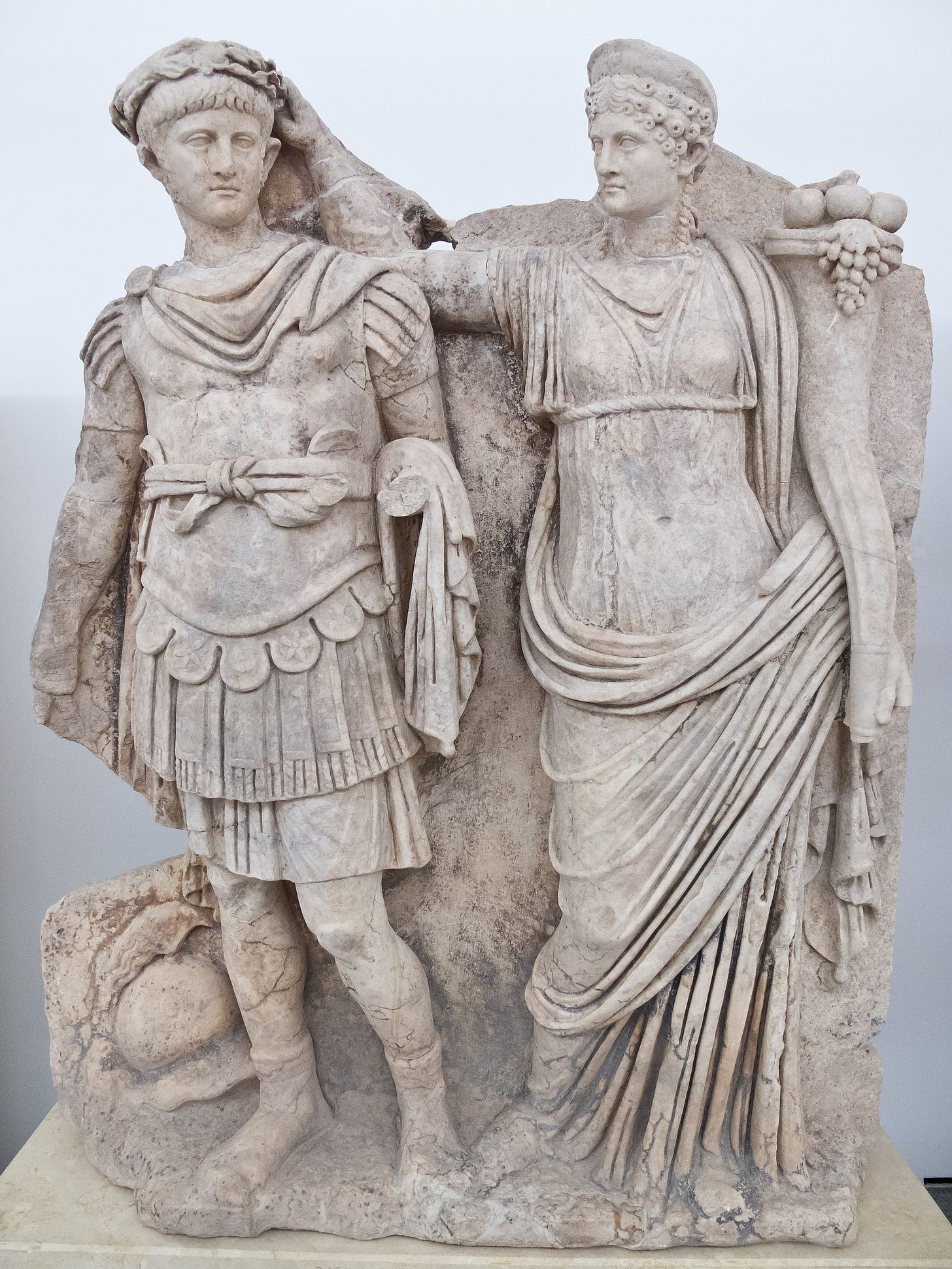The Roman Emperor Claudius and the Flatulence Law
That time when the Emperor Claudius passed a law about flatulence in public and two recipes with eggs from Roman times
Claudius (full name Tiberius Claudius Caesar Augustus Germanicus) was the fourth Roman emperor from 41 A.D. to 54 A.D. Best known for the successful expansion of Rome into Britain, parts of Africa and the Middle East, Claudius was an accomplished leader who brought improvements to the empire's judicial system, passed laws protecting slave workers, extended Roman citizenship and gave citizens more rights.
One less known bit of history about Claudius is that he apparently passed a law allowing people to pass gas in public. Or intended to pass such a law. Yes, that means to fart in public.
The source for this comes from a Roman historian called Suetonius, who wrote some 80 years after Claudius’s death:
“He is even said to have considered passing an edict, by which he would give license to farting at dinner, because he had heard of a man who had nearly killed himself by holding it in for shame.”
Romans at that time loved their lavish banquets and it is said that the emperor Claudius had a sense of humour, which might be the reason why he said he would pass such a law.
As an emperor, he was said to have issued up to 20 edicts per day, so why not one about flatulence in public?

Claudius suffered from various physical ailments during his life, particularly during his youth, including tremors of the head and hands, a limp, a runny nose and foaming at the mouth. Historians have speculated that he may have suffered from cerebral palsy or Tourette’s syndrome, but his family considered his condition a sign of weakness and a source of great public embarrassment.
He faced constant humiliation at the hands of his nephew, the Roman Emperor Caligula. According to the ancient historian Suetonius, Caligula delighted in mocking his uncle for his infirmities, and if Claudius dozed off during dinner gatherings, guests were encouraged to pelt him “with the stones of olives and dates.”
It is then an interesting twist of fate that the same Caligula was assassinated by members of the Praetorian Guard, in 41 A.D. The same Praetorian Guard then saluted Claudius as the new emperor of Rome.

After donning the imperial purple, Claudius faced huge opposition in the Senate. So in order to prove himself a worthy leader, he launched the most ambitious military campaign of the 1st century: the conquest of Britain.
In 43 A.D., he crossed the British channel with 40 000 soldiers and a number of war elephants. Soon Britain was conquered and he was received as a hero back in Rome.
But despite having gained some favour with the conquest of Britain, Claudius was not very lucky in love. He was married no less than 4 times, and that happened after his first betrothal was canceled and once when his bride fell ill and died on their wedding day.
His first marriage he ended with divorce, after suspicions of adultery and murder and the second one he canceled due to political reasons. His third marriage ended more tragically, when he had his wife and one of many lovers she had executed after the two participated in a fake wedding ceremony.
His last wife was Agrippina, his niece. In the end she proved the most treacherous of the four, by manipulating Claudius into naming as his successor her son Nero. After which she is rumoured to have plotted his assassination. He died after eating a poisonous mushroom, leaving the imperial purple in the hands of the notorious Nero.

Thinking of the funny edict Claudius might or might not have passed, I came upon a lot of Roman recipes which would cause this particular discomfort. For this blog post I chose two recipes with eggs, particularly because they contain ingredients which are at hand even in 2023 A.D. One with pine nut sauce and another with milk and honey.

Soft boiled eggs in pine nut sauce:
4 eggs
200g pine nuts
2 teaspoons ground pepper
1 teaspoon honey
4 tablespoons garum (a fermented fish sauce that was used as a condiment in the cuisines of Phoenicia, ancient Greece, Rome, Carthage and later Byzantium)
as garum is impossible to find nowadays, replace with anchovy paste
Soak the pine nuts overnight in water. Then drain and grind them finely in the blender or pound them in a large mortar. Add the pepper, honey and anchovy. Heat that sauce in a bain-marie.
Meanwhile put the eggs into a pan of cold water and bring to the boil. Let them cook for 3½ minutes, then take them off the heat, plunge them into cold water and peel them carefully.
The outer edge of the egg white must be firm, but it must be soft inside. Put the eggs, left whole, into a deep serving bowl and pour over the sauce. Serve.
Ova Spongia ex Lacte (Eggs With Honey)
3 tablespoons honey
4 eggs
275 ml milk
25 g butter
1 tablespoon olive oil
Good pinch of black pepper
Beat together the eggs, milk, and oil. Pour a little olive oil into a frying pan and heat. When this is sizzling, add the egg mixture.
Whisk with a fork until the mix starts to solidify (this will make for a lighter omelette). When thoroughly cooked on one side, turn the omelette over and cook on the other side. Slide it out on a plate.
Warm the honey and drip it over the omelette. Fold this over once more and cut it into thick slices.
Sprinkle with black pepper and serve.






Now I know why Claudius (of “I, Claudius, right?) had such an interesting life that they made a TV series about him!